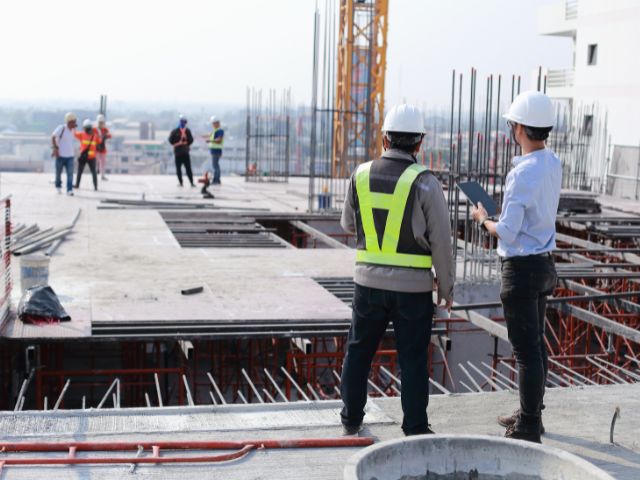

Although you can’t avoid all accidents on construction sites, you can prevent most of them. Look at these ways to reduce injuries on construction sites and include them at your worksite. Make your workplace better by minimizing threats.
Before any project begins, supervisors and safety teams must inspect the construction site for potential hazards. Recognizing hazards and their potential accidents allows teams to create a proper safety plan.
A thorough risk assessment (job hazard analysis) saves lives! Each potential hazard needs a list of preventative measures to avoid injuries. Leadership should present the risk assessment and preventative measures to all workers during a safety brief.
Protective gear is the first line of defense on construction sites. They prevent body injuries like cuts, burns, and toxic fume inhalation. That said, companies must invest in high-quality gear. Some industrial safety products you need on-site include hard hats, safety glasses, and hearing protection.
Some projects require extra protective gear, like respirators and thick gloves. In those instances, construction sites need additional gear on hand to ensure worker protection.
Put noticeable labels on wires and high-voltage areas. In other high-risk areas, safety teams must put warning tapes and neon signs with a clear boundary around the space. Signage prevents access to dangerous sections.
Essentially, where there is a risk of getting hit with falling debris or other dangers, a sign should warn workers about trouble. The last thing anyone wants is a fatal injury.
As previously mentioned, supervisors and safety teams can reduce injuries on construction sites by conducting worksite inspections regularly. Daily inspections identify hazards and potential dangers before workers begin tasks. By catching issues early, supervisors eliminate threats.
For example, supervisors check for slip and fall risks like slippery surfaces. They also pay attention to equipment and catch malfunctions. The goal is to assess worksites and prevent accidents!
Please note that safety teams and leadership are susceptible to mistakes. Workers should also inspect the construction site to ensure the area is safe before they begin their work.
Leadership teams set the tone for safety culture. If employees see supervisors skip risk assessments, don’t wear safety gear, or fail to follow the rules, they won’t take safety seriously. Safety culture is a necessity, not an option. Maintaining a strong safety culture starts with leadership. Workers have a positive attitude toward safety when they see managers following proper protocols.
24World Media does not take any responsibility of the information you see on this page. The content this page contains is from independent third-party content provider. If you have any concerns regarding the content, please free to write us here: contact@24worldmedia.com

Large part of Lynn Woods remains closed

Swampscott water tests lead-free – Itemlive

Mother needs help providing the Christmas experience

A cheerful fundraiser for Saugus team

Carl Daniel Reiter – The Suffolk Times

Joan Ann (Woessner) Polywoda – The Suffolk Times

Thomas L. Lewick – The Suffolk Times

Jeanette Howard – The Suffolk Times

Nina Mazzaferro – The Suffolk Times

Lynn mayor announces re-election bid

BARRETT: They ate plenty – Itemlive

Brooke Moloney, the Minutewoman – Itemlive